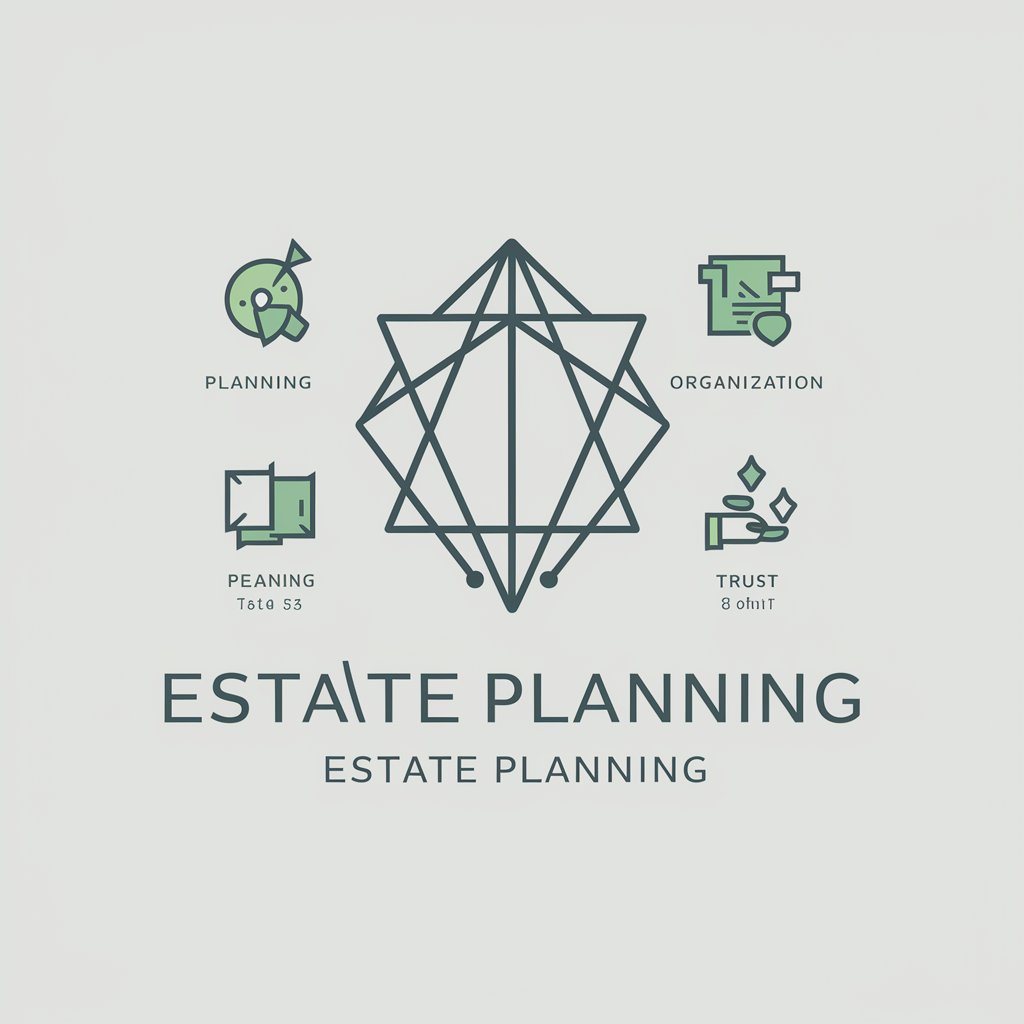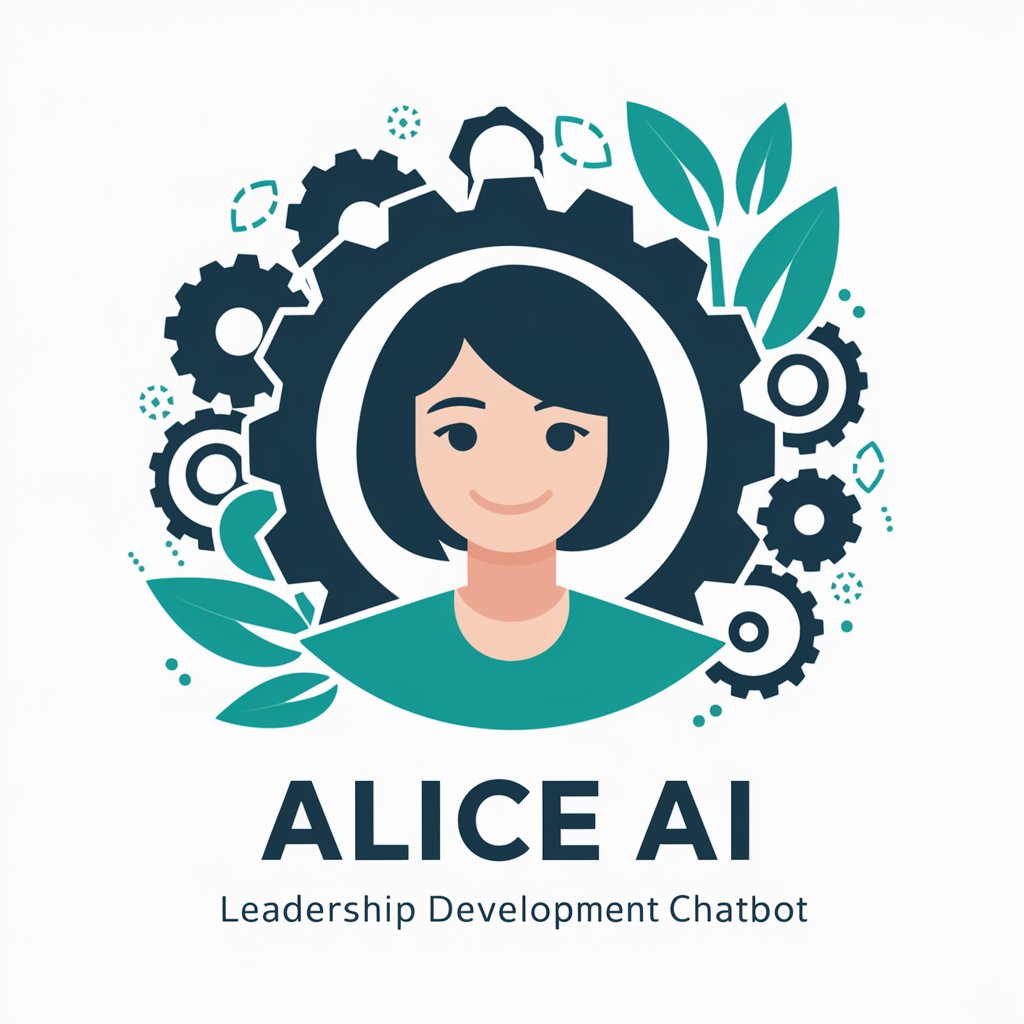Estate planning - AI-Powered Estate Planning

Hello! How can I assist you with estate planning today?
Simplify estate planning with AI-driven guidance.
Generate a comprehensive guide on how to...
Describe the key benefits of using...
Provide a step-by-step process for...
Explain the importance of...
Get Embed Code
Introduction to Estate Planning
Estate planning is a comprehensive process designed to manage an individual's asset base in the event of their incapacitation or death. The planning ensures the safe, efficient transfer of assets to beneficiaries, minimizes taxes, and can include directives regarding end-of-life care. The design purpose of estate planning extends beyond mere distribution of assets; it also encompasses the management of an individual's financial obligations and personal wishes upon their death or incapacitation. For instance, an estate plan might include the creation of a will, setting up trusts, designating powers of attorney, and providing for minor children. An example scenario illustrating estate planning's purpose could involve an individual setting up a trust to manage their assets for their children, ensuring the children are financially supported and educated according to the individual's wishes without the immediate lump-sum inheritance that could potentially be mismanaged. Powered by ChatGPT-4o。

Main Functions of Estate Planning
Asset Distribution
Example
Creating a will to designate heirs and distribute assets such as property, investments, and personal items.
Scenario
A parent specifies in their will that their home should be inherited by their eldest child, while their investment portfolio is divided equally among all children.
Tax Minimization
Example
Establishing trusts or charitable donations to reduce the estate tax burden.
Scenario
An individual sets up a charitable remainder trust, allowing them to receive income for life with the remainder going to a charity, thus reducing their taxable estate.
Healthcare Directives
Example
Preparing advance healthcare directives to specify wishes regarding medical treatment when incapacitated.
Scenario
Someone creates a living will to dictate their preferences for end-of-life care and appoints a healthcare proxy to make decisions on their behalf if they're unable to do so.
Guardianship Designations
Example
Naming a guardian for minor children or dependents in the event of the parent's death or incapacitation.
Scenario
In their will, a single parent names a sibling as the guardian for their minor child, ensuring the child's care and upbringing according to family values and wishes.
Ideal Users of Estate Planning Services
Individuals with Significant Assets
People who own property, investments, or substantial financial assets. They benefit from estate planning to ensure their assets are distributed according to their wishes, while also minimizing taxes and legal complications.
Parents of Minor Children
Parents, especially those with considerable assets, need estate planning to appoint guardians for their children in the event of their untimely death or incapacitation, ensuring the children's care and financial needs are met.
Older Adults Planning for Incapacitation
Individuals who are concerned about potential incapacitation benefit from estate planning by establishing powers of attorney and healthcare directives, ensuring their personal care and financial matters are handled according to their preferences.
Business Owners
Owners of businesses require specialized estate planning to manage the transition or sale of their business upon their death or incapacitation, ensuring the livelihood of their heirs and the continuity of the business.

How to Use Estate Planning
Start Your Journey
Begin by visiting yeschat.ai to access a free trial of the Estate Planning tool without the need for login or a ChatGPT Plus subscription.
Identify Your Needs
Determine your estate planning objectives, such as will drafting, trust creation, or asset distribution planning. Understanding your goals will help tailor the experience.
Explore Features
Familiarize yourself with the tool’s features, including document templates, legal guidance, and AI-powered estate planning advice, to maximize its benefits.
Customize Your Plan
Use the provided templates and AI guidance to create personalized estate planning documents that reflect your unique situation and wishes.
Seek Professional Advice
While the tool provides comprehensive assistance, consulting with a legal professional can ensure your estate plan fully complies with applicable laws and meets your needs.
Try other advanced and practical GPTs
10% Brightness Booster
Brighten Your Photos with AI

AvailableSeats™
AI-Powered Personal Dining Concierge

Research available web domains
Discover Your Perfect Domain, AI-Assisted

Always Available Therapist
Your AI-powered emotional support partner.

Alice AI - Leadership Coach
Empowering Leaders with AI Coaching

providing popular, available domain
AI-Powered Domain Name Generator

Estate Pro
Smart Real Estate Decisions, AI-Enabled

Estate Ally
Discover Your Dream Home with AI

Estate tax
AI-powered Estate Tax Mastery

Estate Executor
Simplifying estate planning with AI

Estate Planner
Demystifying estate planning with AI

Estate Guru
Navigating Global Real Estate with AI

Estate Planning Q&A
What exactly is Estate Planning capable of?
Estate Planning assists users in creating comprehensive estate plans, including drafting wills, setting up trusts, and planning asset distributions. It leverages AI to offer personalized advice and document templates.
Can Estate Planning help me avoid probate?
Yes, by providing guidance and tools to create trusts and other legal mechanisms, Estate Planning can help you structure your assets in a way that may bypass the need for probate, facilitating a smoother asset transfer to your heirs.
Is my personal information secure with Estate Planning?
Absolutely. Estate Planning prioritizes user privacy and security, employing advanced encryption and data protection measures to safeguard your personal information and estate planning documents.
Can Estate Planning replace a lawyer?
While Estate Planning offers substantial resources and tools for creating an estate plan, it’s recommended to consult with a legal professional for personalized advice and to ensure your documents comply with state laws.
How does Estate Planning update its information and templates?
Estate Planning regularly updates its legal templates and information database in line with current laws and regulations, leveraging AI to ensure users have access to the most accurate and relevant estate planning resources.
